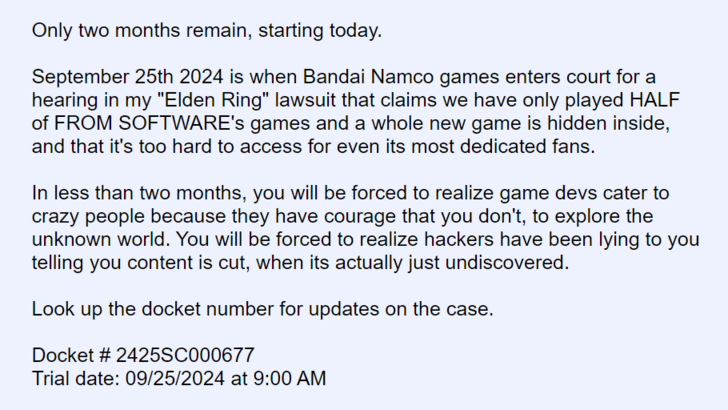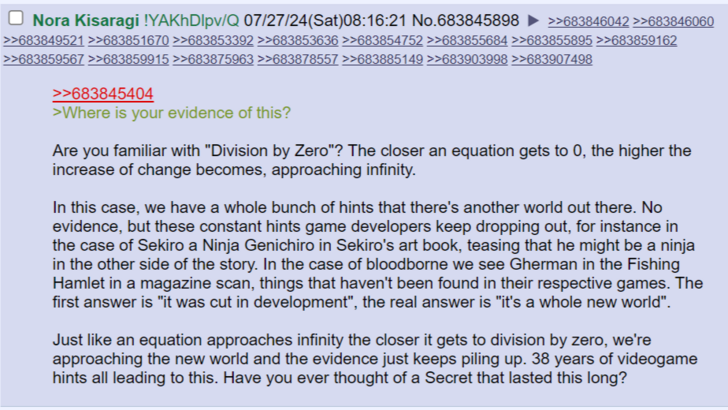An Elden Ring player, Nora Kisaragi, has filed a lawsuit against Bandai Namco and FromSoftware in Massachusetts small claims court. The suit alleges that the developers misled consumers by concealing substantial game content, claiming a "whole new game… hidden inside" their titles, obscured by intentionally high difficulty.

Kisaragi's claim, initially announced on 4Chan, centers on the argument that FromSoftware's notoriously challenging games, including Elden Ring and its recent Shadow of the Erdtree DLC, mask significant, intentionally hidden content. This contention contradicts the common understanding that difficult-to-access areas represent either cut content or exceptionally challenging gameplay. Kisaragi cites datamined content as evidence, interpreting it as intentionally hidden rather than cut material. The plaintiff lacks concrete evidence, relying instead on perceived "constant hints" within the games and related materials, such as art books and developer statements.

The core of Kisaragi's argument is that players paid for inaccessible content without knowledge of its existence. However, this claim is widely considered absurd, as dataminers would likely have uncovered such extensive hidden content. The presence of unused assets in game code is a common industry practice, often resulting from time constraints or development changes, not intentional deception.

The lawsuit's legal viability is questionable. While Massachusetts small claims court allows individuals over 18 to sue without an attorney, the case hinges on proving a violation of consumer protection laws by demonstrating unfair or deceptive practices. Kisaragi faces a significant hurdle in providing substantial evidence for the existence of a "hidden dimension" and proving resulting consumer harm. The highly speculative nature of the claim makes dismissal likely. Even if successful, damages awarded in small claims court are limited.

Despite the low probability of success, Kisaragi's stated goal is not monetary compensation but to force Bandai Namco to publicly acknowledge the alleged hidden content's existence.
















